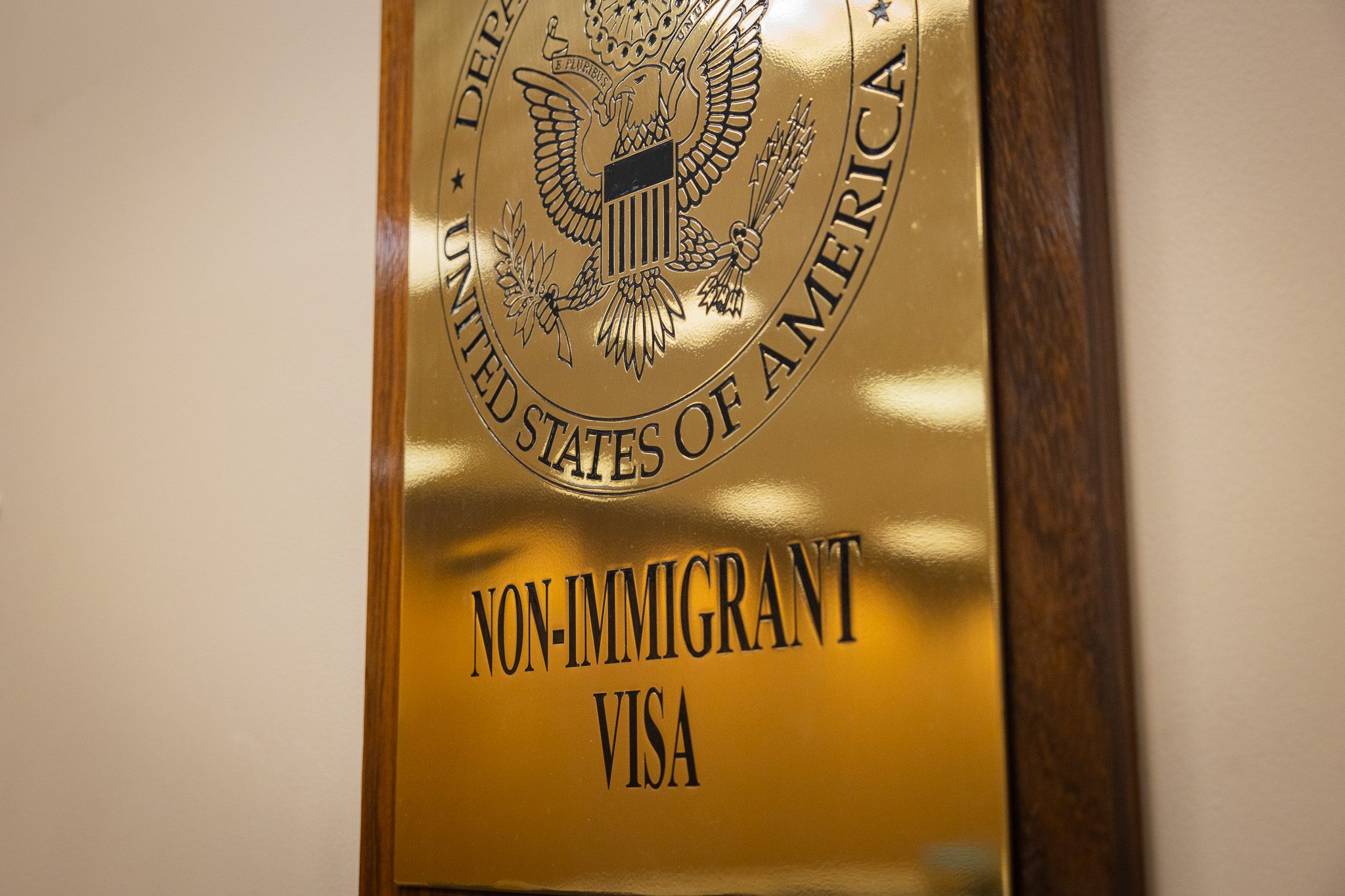SUMMARY
This is AI generated summarization, which may have errors. For context, always refer to the full article.

MANILA, Philippines – Recommendation letters have no bearing in applying for a non-immigrant visa, United States embassy Consul General Mark McGovern said, as he debunked some myths about visa applications to the US.
McGovern said in a press briefing on Thursday, June 1, that many visa applicants have been submitting letters of endorsement from public officials to boost their chances of securing a visa.
“I know this is just part of a cultural thing, but third-party endorsements mean nothing to the visa application. Like a letter from the mayor or the governor or a teacher,” he said.
While proof of financial capability to support a trip to the US is considered, McGovern said that consular officials do not completely rely on bank statements in assessing applications.
“The money that’s in the bank account makes no difference because we know, as well as people know, that somebody could put that money in there one day and then take it out the next,” he said.
McGovern also addressed the issue that single women applying for a visa are most likely to be denied.
Based on statistics, McGovern said that the visa denial rate for both sexes is the same.
The consul general also said that the Visiting Forces Agreement between the Philippines and the US has nothing to do with the higher visa approval rating.

Why visa applications are denied?
The decision over visa applications highly depends on the application documents and individual circumstances, according to McGovern, so a lack of submitted documents could also be a factor in a visa denial.
“An application may be denied because the consular officer does not have all of the information required to determine if the applicant is eligible to receive a visa, because the applicant does not qualify for the visa category for which he or she applied, or because the information reviewed indicates the applicant falls within the scope of one of the inadmissibility or ineligibility grounds of the law,” the US State Department said.
In applying for a visa, McGovern stressed the importance of truthfulness and relying on official information.
Establishing the reason to return back to the Philippines is also crucial in the visa application approval, McGovern said.
Social, economic, family, employment, and education ties are considered in the assessment of applicants’ intent to return to their home country.
“They just have to demonstrate that there’s a reason for them to come back, that they’re not giving up everything to move to the US,” McGovern said.
While there are many tips online on how to secure a visa, McGovern said that “there is no magic bullet or a magic list of things that people need to acquire for the visa.” – Rappler.com
Add a comment
How does this make you feel?
There are no comments yet. Add your comment to start the conversation.